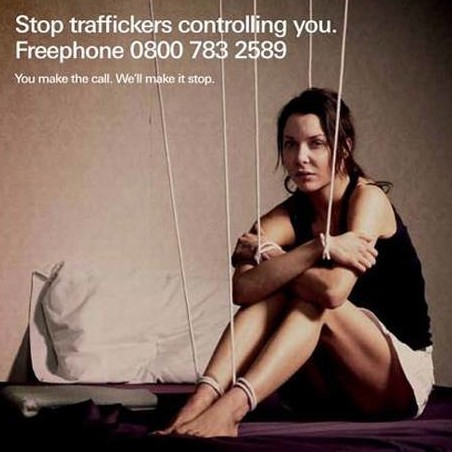At first look, it was merely three men chatting on Oxford Street while a young woman looked on.
In fact, a pimp and two traffickers were negotiating the sale of the woman. While she stood helplessly by, they argued about her value as a sex slave and then £3,000 was handed over.
Fortunately, the picture was taken by members of the Met’s vice unit. The woman was rescued and the men convicted and sentenced to a total of 63 years inside.
Tomorrow, I will be standing on the same spot handing out leaflets to publicise a change in the law that, while not perfect, might help in the fight to stem the rise in human trafficking and prostitution in our city.
Nationally it is estimated that around 4,000 women a year are trafficked into the UK, the vast majority of them passing through London. Now, after many years of lobbying, the Government has finally responded by making it illegal to pay for sex with someone who has been forced into prostitution. Ignorance will be no defence; the new charge carries a hefty fine or prison sentence.
Part of a drive to tackle the demand side of the sex trade, this law will also bring new powers for the police to shut down brothels and prosecute kerb crawlers.
In London, the Mayor has already led a push against prostitutes’ cards in telephone boxes and called for local newspapers to refuse sex adverts. At the same time, the Met has ramped up its efforts against trafficking with a newly reorganised specialist squad.
All of this is in response to the rise in the number of women forced into prostitution in London – and a realisation that those who use prostitutes are often the clients of highly organised gangs involved in a range of other violence, drug dealing and gun running.
Behind this rise lies a change in British attitudes to prostitution over the past decade.
The number of men using prostitutes has reportedly doubled, while sportsmen and celebrities are regularly reported as dabbling in the world of paid sex. And this is not just a problem confined to central London: there are on average 28 brothels in every borough across the city.
But then turning a blind eye or a knowing wink to prostitution is a British tradition. The stereotype of the “working girl” with a heart of gold is powerful. In reality, life is violent and brutal for the 8,000 women forced to work in brothels and the thousands more working on the streets.
The growing cultural tolerance of paid sex has taken place alongside the increasing sexualisation of children. The media often seems intent on teaching young girls that their body, rather than their mind, is their most useful tool. Consequently, many of them would rather be called “easy” than a prude. And then there is corporate Britain, using sex to sell its products.
Today’s law change has the potential to help the police tackle the demand for prostitution by arresting punters who think it is acceptable to pay for sex with women – regardless of whether they have been exploited or coerced into prostitution. But for it to really work, we need a more fundamental shift in our collective attitude to London’s growing sex trade.

